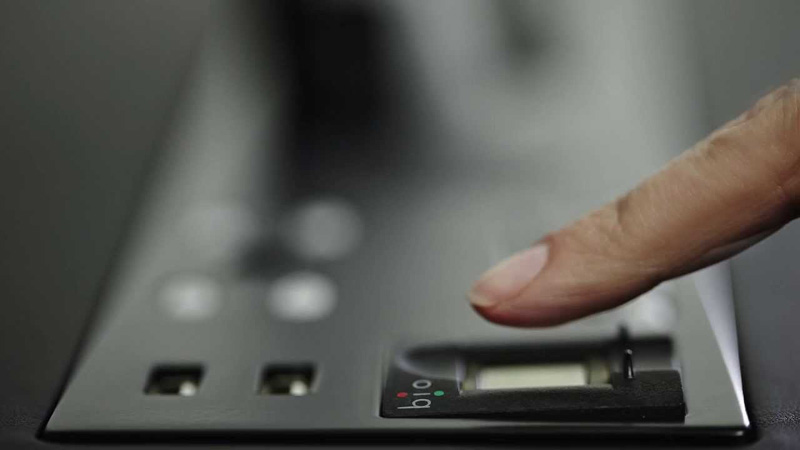This article was sponsored by Go Zim, a civic education campaign aimed at encouraging citizens to get out and vote on elections day. See more at GoZim.co.zw.
In March of last year, Techzim published an article attempting to dispel the myths surrounding the introduction of Biometric Voter Registration (BVR) in Zimbabwe.
The technology, which captures voter’s fingerprints so as to enhance the identification of voters on election day and prevent chances of multiple registrations, was being used by publications to discredit the voting process as a whole – and Techzim attempted to correct some of this misinformation.
No Biometric Or Electronic Voting
These publications wrote how the ZEC would be using the biometric process to implement “biometric voting or electronic voting”:
This then set the basis for the claim that the system would be susceptible to ‘cyber-attacks’ and ‘hacking’ which would derail the voting process and dis-enfranchise voters, citing France’s abandonment of electronic voting as an example.
Now, over a year later and Zimbabwe is still dealing with these myths – so much so that people are convinced voting is not worth it.
However, it’s time to put your mind at ease: the ZEC will not be implementing ‘biometric or electronic voting’ on 30 July.
One more time with feeling: the ZEC will not be implementing ‘biometric or electronic voting’ on 30 July.
Voting Is Still Manual
Although media outlets and sometimes politicians have shared the idea suggesting the BVR system will enable party leaders or other interested parties to see who voters have voted for, not only is this false information, but damaging as well: the BVR system was simply used to register voters.
It is unconstitutional for anyone to interfere with the voting process, before, during or after voting. So, on Election Day, the BVR system will only be used to verify and authenticate a voter’s credentials. The voter will then be given a manual ballot paper that they will use to manually vote, just like Zimbabwe has been doing since 1980.
Voting is still manual, and you have a right to vote for your candidate of choice in utmost secrecy.
Participate
Still not convinced about going to the polling station? Think of it this way: not voting is essentially voting. If you are not voting, you are saying someone else’s choice is your choice. So, even if the candidate you would vote for wins the election, if you have not voted you don’t actually have a legitimate claim on that winning candidate.
It is these messages that need to be shared with everyone so that, come July 30, all Zimbabweans can come out and vote without fear of intimidation as the constitution guarantees their right to vote and to vote for a person of their choice. In secret.
Start conversations, dispel the myths and educate those who still have unwarranted ideas about voting. Encourage your peers, colleagues, family and even foes to get out and vote.
Lastly, check your voter registration details on *265# and make sure to take along your ID and voter registration card on Election Day to prove you have registered.
Come 30 July 2018, go Zim, get out and make your voice heard.
You can follow Go Zim on Facebook and Twitter. See more at GoZim.co.zw.

6 comments
If biometric fingerprint recognition fails for someone on voting day, do they fall back on photo ID only? Hopefully we will get some stats together with the results about how voters were identified on election day
BVR is the digital version of your old ID, its that simple!!
If the system fails to identify you via your fingerprint because of one reason or the other, then the manual process is always there to fallback on.
If you are worried that the fingerprint reader will fail, always carry your original ID. How that is spinned around by people lm yet to understand it.
I don’t think it is that simple – otherwise what would be the point of it? If the BVR system was adopted to prevent fraud, then all failures need to be handled in a well documented, pre-agreed and auditable manner.
I don’t like the candidates from both sides esp the city of Harare ones… They just there to enrich themselves at our expense…I’ve registered to vote for my first ever election but honestly there’s no substance or track record to the candidates… There no phone numbers of we want service delivery… So should i still vote… I’m sure I’m not the only one… One respond
It is that simple, l have encountered it somewhere as where its used and it works.
The problem with Zim is that everything is politicised and you loose the decents of common sense.
Biometric is defined and used as per scientific guidlines, but some political parties in Zim wants to redefine it to suite their unreal demands.
Step back and review biometrice technology first before you look it through political eye!!
“If you have not voted you don’t actually have a legitimate claim on that winning candidate”, it’s not like I want to go to stay at the winners house, or that I want them to come to mine. Lol!
Anyway, one thing you forget is that voting is my right, I also have the right to not vote, if I choose to do so. I can’t vote, just for votings sake. That is silly!! A person should vote when a) they have a decided choice from available options, and b) they care about the outcome of the vote. The input and the output should both matter.
Encouraging people to vote JUST because it’s their right. is like getting a passport, just because “it is your right”, but you have nowhere you ever intend to go. I strongly believe peer pressure voters are the people who end up as spoilt ballots, because they have no solid decision on what they are doing and end up ticking 2 boxes.